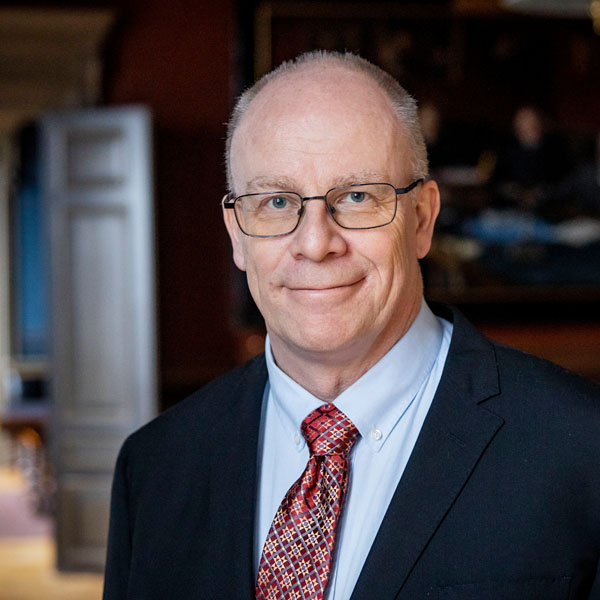A week ago, the leaders of universities and other higher education institutions throughout Sweden gathered here in Uppsala. The occasion was the annual general assembly of the Association of Swedish Higher Education Institutions. It is customary at these meetings for the institution hosting the assembly to choose a topic that will interest and motivate participants. We chose ‘Democracy and Global Engagement in Academia’.
The day was divided into sessions. The first was entitled Current ideals in democracy and the global engagement of academia, with speakers Linda Wedlin (Uppsala University), Malek Finn Khan (Swedish Defence Research Agency) and Ulrika Björkstén (Public & Science Sweden). The second was Democracy and politics in academia and on campus, with speakers Anne Ramberg (Uppsala University) and Cecilia Uddén (Radio Sweden). These were followed by a panel discussion with student perspectives on the topic. The participants were: Rasmus Lindstedt (Swedish National Union of Students), Isidore Brommare (Uppsala Association of Foreign Affairs), Arvid Rutgersson (Uppsala Peace and Development Students’ Association), Hedda Ottesen (doctoral student in global health), Sara Holmström (doctoral student in public law), Robert Egnell (Swedish Defence University) and Linda Wedlin. The day concluded with a conversation with former minister Leif Pagrotsky.
Many challenging issues were raised and discussed during the various sessions. As is often the case, some formulations stuck in the mind more than others. Linda Wedlin told listeners about her custom of treating students to an impassioned lecture on the nature of academic education, the conditions on which research depends and scientific method. She emphasised that in academia we must encourage encounters between arguments, not opinions, and that what matters is not who says something but whether or not their argument holds. Cecilia Uddén, in turn, commented that while it is often said that the first victim of war is the truth, this saying is no longer particularly pertinent. She observed that in our present polarised world, many people claim to own what they call the truth, and that it is evident instead that the first victim is not truth but doubt. The willingness to question the validity of one’s own point of view is what dies in the first wave of confrontation.
Since the assembly, I have been reflecting on what they said.
Scientific method
The scientific method is described differently in different disciplines, but what these descriptions all have in common is that they refer to systems for moving towards greater truth and accuracy than previously obtained. I personally have applied a three-stage model:
- Observation/idea/curiosity
- Hypothesis/model
- Test
After which the next round begins. Re-search. The result of stage 3 becomes a new starting point for stage 1. So the cycle continues.
The insight is that all we know are approximations. Knowledge and science are a quest for the objective truth – and what that is, we can never be sure. With curiosity in our mind, we search for answers and for defects in our models and arguments. In all that we do, curiosity spurs us and doubt drives us on. This is also what drives me.
That is why Linda Wedlin’s words about her impassioned speech to students and Cecilia Uddén’s words about the loss of doubt in our polarised world were words that made me react.
Democracy and our role
We have talked a good deal in recent years about threats to democracy, about algorithms leading to us living in bubbles even more than previously, and polarisation reducing dialogue to an exchange of set lines. We see researchers’ data challenged by opinions, as if they had equal value and belonged on the same playing field. Apples are compared with pears, direct encounters between arguments decline and discussion turns into a catalogue of opinions from the parties involved, asserted without being questioned.
I think we in academia have more to lose from this trend than many others. The University is not an isolated island and when we are drawn into a megaphone culture where the individual’s brand carries more weight than the value of the arguments, we ultimately risk opinionated fundamentalism and an impoverishment of the investigative and exploratory practice on which all academic activities are based.
It has always seemed to me that conformity is often harmful. I believe it is true that the climate of debate in our country suffers from a lack of openness to re-examining our standpoints and that we need to talk more across generational lines. In academia, I perceive a gap between the alleged desire for an open atmosphere for discourse and dialogue, and the actual practice. We sometimes evince exaggerated consideration in our desire to avoid offending anyone, instead of establishing a climate for conversation where our basic assumptions are that everyone means well, but our views may differ. I also believe it is ultimately dangerous to equate opinions with arguments and I know, with certainty, that we have a duty as an institution of higher education to explain the difference.
“Without doubt, no one is wise,” said Tage Danielsson.

